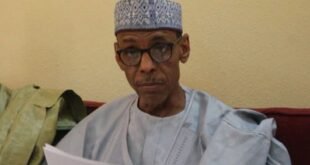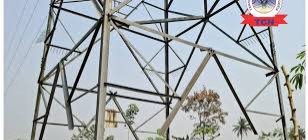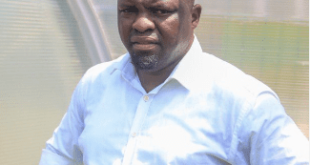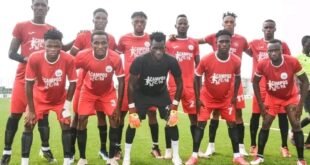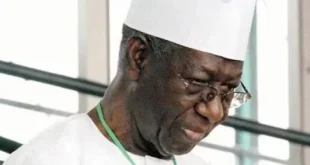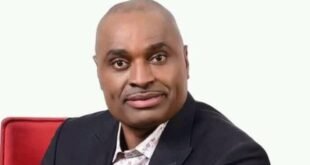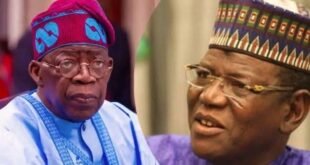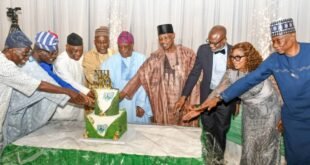The presidency reacted to the recent comments made by Alhaji Sule Lamido, former governor of the state of Jigawa, on live television, in which he falsely accused President Bola Tinubu to support the cancellation of the presidential elections of 12 June 1993.
According to the presidential spokesman, Bayo Onanuga, Alhaji Lamido’s statements represent a distortion of history and a deplorable attempt at revisionism.
*Said the president Tinubu became important only after the formation of Nadeco and said that the mother of Tinubu, Alhaja Abibatu Mogaji, mobilized market women to support cancellation. These accusations are clearly false.
*We set the direct record: Alhaja Mogaji has never mobilized market women to support unfair cancellation. If he had done it, he would have lost his position as a market leader in Lagos. While once he had a personal relationship with the then President Babangida, this was before the announcement crisis.
*It is important to remind the Nigerians that Alhaji Lamido, as secretary of the Social Democratic Party (SDP) – the party whose candidate, Mko Abiola, won the elections of 12 June – was among those who were unable to oppose the injustice of the army.
The Leadership of the SDP, including Lamido and President Tony Annih, wrote their names in the book of infamy by surrendering the mandate of the people without resistance. With them eternal shame, Lamido and Anenih collaborated with the defeat National Republican convention to deny His mandate to Abiola.
In stark contrast, Senator Bola Tinubu was stopped even before General Abacha dissolved political parties and all democratic institutions, including the National Assembly, on November 17, 1993, following his coup.
Days after General Babangida turned to the Senate and announced his decision to take part on August 27, 1993, the creation of a provisional government to replace him, the senators discussed the speech. On the floor of the Senate of August 19, 1993, Tinubu unequivocally condemned the cancellation, describing it as another coup and urging the Nigerians to refuse injustice and illegality.
The registers captured his contribution, showing that he claimed to support the elections of 12 June, not against it, as Lamido said.
“We have a situation that suggests that the abortion of the elections of June 12 is another coup d’état,” said Senator Tinubu. “My question is: when we stop tolerating injustices, coup d’état and abuse by the people on which we have invested so many resources: the public funds of this country? … Yes, is it true that we have a crisis, but for every action there is no reaction. The law. Therefore, the current military administration, by virtue of the repeal and violation of its decree, has committed a crime,” said the Senator of Lagos West to his. colleagues.
The winner of the elections, Abiola, was out of the country when the legislators discussed the offer of Babangida to get aside for a provisional government. He returned in September 1993. And who followed him to the military group of Abacha, then openly planning a coup d’état against Ernest Shonekan’s Ing-Eng? It was Tinubu. The photographs exist today, which show Tinubu behind Abiola and Abacha.
Abaccha took over on November 17, 1993 and dissolved all democratic institutions, including governors, the national assembly and the state legislature. Tinubu and a group of senators gathered in Lagos, challenging the junta. Tinubu, Ameh Ebute, Abu Ibrahim and others were arrested and held in Alagbon. The police brought them to court and made a case against them. During the detention of the police, Tinubu continued to finance protests Pro-12 June in Lagos, including the blockade of the third continental bridge.
Week after Abbach supplanted Eng, quickly became clear to Abiola and Tinubu that Abaccha would not have been a soldier of democracy while denied to allow Abiola to recover his mandate.
Enter the National Democratic Coalition (Nadeco). He was born on May 15, 1994. By including a large coalition of Nigerian Democrats, he invited the military government of Sani Abacha to resign in favor of the winner of 12 June 1993, electoral, Mko Abiola. On the first anniversary of his elections, Abiola made a statement to Epedo in Lagos, announcing as a duly elected president. Ten days later, on June 22, he was arrested, following which many activists in favor of democracy also fled Nigeria, including Bola Tinubu. Tinubu lived in exile for almost five years while Lamido and his genre made agreements with Abacha. While Tinubu was absent, the agents of the junta bombed his home in Balarabe Musa Crescent, Victoria Island.
Fortunately, Lamido admitted that Tinubu played a significant role in Nadeco. In fact, Tinubu has done more. He also supported Nalicon of Professor Wole Soyinka, offering material resources to feed the struggle.
It is known that Tinubu played a leading role in the agitation against the cancellation of 12 June. Many leaders and journalists of Nadeco in exile and home have openly admitted that Tinubu supported them and provided them with the fights.
With his narrative, Lamido seemed confused on the role of Nadeco. It was a branch of the crisis on June 12th. Nadeco provided a platform to channel the struggle. So far, all the resistance has been left to groups for civil rights, journalists and a work section, such as Nupeng.
It is therefore disappointing that Alhaji Lamido, despite having recognized the role of Nadeco di Tinubu, would try to rewrite the story for political reasons and to be a member of the discontent coalition.
We recommend Lamido to check his facts before going on television to spread falsehood. It does not help its image and the coalition to which it belongs is committed to revisionism. Revisionism does not serve the cause of truth or the interests of our nation.
We do not want to believe that Alhaji Lamido suffers from what psychologists call high poppy syndrome. However, the conclusion is inevitable as it seems that Lamido is envious of the democratic credentials of Tinubu. The facts remain clear: President Tinubu was – and remains – a constant supporter of democracy, in contrast with the documentation of Lamido and others who capitalized in the face of military oppression and intimidation.
Post views:
105
 JamzNG Latest News, Gist, Entertainment in Nigeria
JamzNG Latest News, Gist, Entertainment in Nigeria
